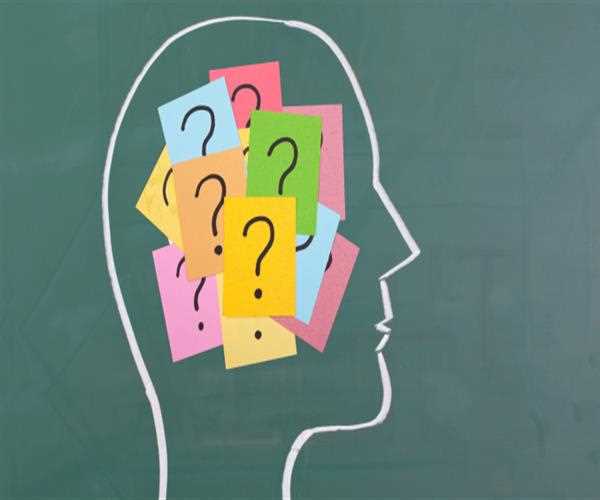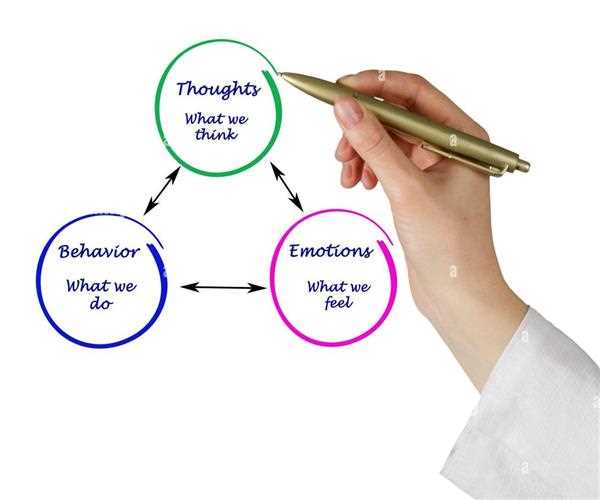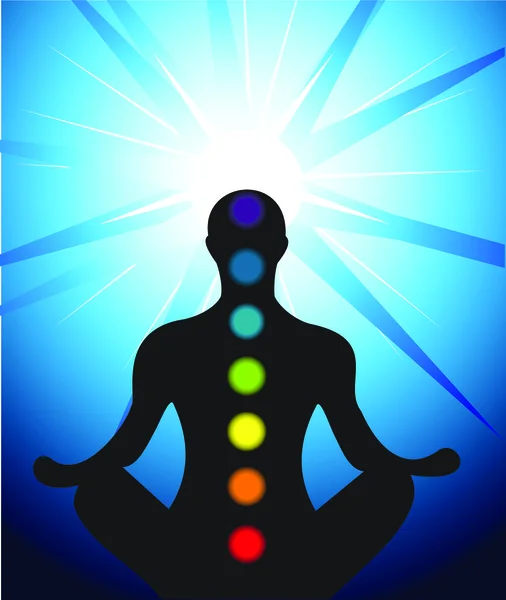
30-Jun-2023 , Updated on 6/30/2023 9:57:29 AM
The science behind who am I - lifechanging question
Overview
"Who am I?"
How many times have you posed this question to yourself?
How many times have you wondered what your purpose in life is?
How often have you doubted your actual presence?
For me, the response is numerous times.
Also, the actual inquiry makes me pose to additional inquiries: At any point might I at any point know who I'm? Why am I required to identify myself? Will any response ever please me?
This line from the Indian sage Ramana Maharshi inspires me when these questions overwhelm me:
"The inquiry, 'Who am I?' is not intended to receive a response to the question, "Who am I?" is intended to disintegrate the examiner."
Who am I is the popular book written by Shri Ramana Maharishi.
He said that every living thing aspires to perpetual happiness without suffering. In everybody there is noticed preeminent love for oneself. Additionally, love is solely based on happiness. Therefore, one needs to be aware of who they are in order to achieve the happiness that comes naturally to them and is felt in a state of deep sleep when there is no conscious awareness. To accomplish this, the Way of Information, the enquiry as 'Who am I?', is the most important mean.
But what does "who am I" actually means?
Maharishi said that who am I? is the title offered to a bunch of inquiries and responses bearing on Self-enquiry."
"The questions were put to Bhagavan Sri Ramana Maharshi by Sri M. Sivaprakasam Pillai about the year 1902." "This record was first published by Sri Pillai in 1923 (in the original Tamil) along with a couple of poems composed by himself relating how Bhagavan's grace operated in his case by dispelling his doubts and by saving him from a crisis in life." "The questions were put to Bhagavan Sri Ramana Maharshi
“Along with Nan Yar (Who am I?) and Vicharasangraham (Self-Enquiry), in the Master's own words, the first set of instructions. Of Bhagavan's works, these two are the only prose pieces. They plainly put forward the focal instructing that the immediate way to freedom is Self-enquiry.”
"Thoughts make up the mind. The 'I'- believed is quick to emerge in the psyche.
The "answer" to "who am I" is our identity.
Our entire system of memories, experiences, emotions, thoughts, relationships, and values that define who we are is our identity.

The stuff makes up a "self."
Understanding who we are requires an understanding of our identity. Why? Since we can separate personality into parts (values, encounters, connections).
We can identify and comprehend these parts. Then, once we understand the parts of our identity, we can see who we are as a whole.
Simply put: we're much more than a certain something. We're an entire arrangement of thoughts and encounters.
When the inquiry 'Who am I?' is pursued persistently, all other thoughts are destroyed, and the supreme non-dual Self is left alone after the "I" thought itself disappears. As a result, the erroneous identification of the Self with non-self phenomena like the body and mind comes to an end, and there is illumination, nakshatra.
"As long as there are impressions of things in the mind, the question, "Who am I?" will continue. is necessary. As contemplations emerge they ought to be obliterated without even a moment's pause in the actual spot of their starting point, through request. On the off chance that one hotels to thought of the Self unintermittently, until Oneself is acquired, that by itself would do. They will continue to scurry around the fortress as long as there are enemies there; in the event that they are obliterated as they arise, the post will fall into our hands."
“The gross body… I'm not; the five mental receptors… I'm not; I am not one of the five cognative sense organs; the five essential airs, but I am not; indeed, even the psyche which thinks, I'm not; the naiveté as well, which is blessed exclusively with the remaining impressions of articles and in which there are no articles and no functionings, I'm not.”
- "That Awareness, which alone remains – that I am," I said, "after negating all of the above mentioned as "not this," “not this.”
- “Existence-Consciousness-Bliss is the nature of Awareness.”
- "Request comprises in holding the brain in Oneself. Thinking that oneself is Brahman—existence, consciousness, and bliss—is the foundation of meditation.
My opinion related to the question: Who am I?
Who am I?
कोऽहम् ?
The Indian sages have been posing this inquiry since the days of yore. This question tracks down an intricate conversation in the Vedic way of thinking.
Who am I now?
Is this me? (1) The body?
(2) The Brain?
(3) The Heart?
Which of the three entities listed above is my true self? Or on the other hand am I the blend of all the three?
The Upanisads try to address this inquiry in different ways.
The Upanisads asserts that I am that. 'It implies: I'm the Atman i.e, soul. Presently could the spirit at any point exist without the underlying scaffolding likewise of (a) Body and (2) Brain?

No.
My identity as a human being is based on all three parts—my body, my mind, and my soul. Every single one of the three is what makes me who I am today. I cease to exist in my current form if any of them are lost.
Therefore, my humble response to the query is: I'm a mix of the relative multitude of three components of Body, Psyche and Soul.
But actually this is essential question of presence and just those, who have the enchanted blessing of 'guiltlessness', pose this inquiry and make progress toward replies...
Indeed, we have had the response of this question given by our extraordinary progenitors, around 1000-500 BC and it summarizes as - "Aham Brahmashmi...". This response is very metaphorical and has been misinterpreted. On the other hand, modern science and its very scientific studies have a lot to offer in response to the question "Who Am I?"
The contemporary information about cognizance, this self-awareness', 'a mindfulness about 'I' being unmistakable from others, is presently especially reasonable... According to it, "you, as you feel yourself is a tremendous misnomer... your cognizance is an emanant property of the data handling of your mind, which continually gets tactile data from milieus around and consistently communicates with them...".
"There is a dualism, which means that you are in your perspective (perception) and the perspective is in you..." is what the statement reads. This means that your perceptions of yourself and the environment create your subjective realism, which in turn creates your sense of yourself and awareness of your personality.
According to cosmology, we remain a mystery to ourselves. Cosmologists also occasionally propose that nothing started the universe. Othertimes they say god who made this universe is an element which needn't bother with a maker .. be that as it may, they frequently describe it as crazy. . This shows the vulnerability this journey actually stays perplexing. . Sometime when we will actually want to tackle this issue then we will actually want to know the brain and tear the veil of god.
Be that as it may, it again brings up an issue. Can we survive when we know everything there is to know about ourselves?
Scientists did several Studies using neuroimaging techniques, such as functional magnetic resonance imaging (fMRI), have shown that when individuals reflect upon their personal traits, memories, or beliefs, the prefrontal cortex becomes highly active. This suggests that self-reflection is associated with distinct neural activity patterns.
Furthermore, researchers have identified specific neural networks involved in self-processing. The default mode network (DMN), which consists of interconnected brain regions, becomes more active during self-referential thinking. This network is associated with introspection, mentalizing, and constructing narratives about oneself. By studying these neural mechanisms, scientists are gaining insights into how our brains create a sense of self and how it can be influenced by various factors.
Psychologists have found that our self-identity is malleable and can be influenced by social contexts. This phenomenon, known as social identity theory, suggests that we derive our sense of self from our group memberships and the social categories we identify with. We tend to adopt the norms, values, and behaviors associated with our social groups, which can shape our self-concept.
However, self-discovery also involves transcending social roles and societal expectations to uncover our authentic selves. It requires introspection, reflection, and a willingness to question and challenge the beliefs and values we have internalized from our social environment.
Asking the question "Who am I?" and delving into the science behind it can be a life-changing endeavor. It is an invitation to explore the depths of our being, to peel away the layers of conditioning and societal expectations, and to discover our true essence.
Through self-discovery, we can uncover our passions, values, and purpose in life. We gain clarity about what truly matters to us and make choices that align with our authentic selves. This alignment brings a sense of fulfillment, satisfaction, and inner peace.
Moreover, self-discovery opens the door to personal growth and transformation. It allows us to identify and overcome limiting beliefs and self-imposed barriers. By understanding our strengths and weaknesses, we can cultivate our potential and develop new skills and capabilities.
The question "Who am I?" holds immense power and potential for personal transformation. As science continues to unravel the mysteries of self-identity, we gain a deeper understanding of the neurological and psychological processes that shape our sense of self.
So, take a moment to pause, ask yourself, "Who am I?" and be open to the profound insights and discoveries that lie within. Embrace the transformative potential of this life-changing question and embark on a journey of self-discovery that will shape the course of your life.

SEO and Content Writer
I am Drishan vig. I used to write blogs, articles, and stories in a way that entices the audience. I assure you that consistency, style, and tone must be met while writing the content. Working with the clients like bfc, varthana, ITC hotels, indusind, mumpa, mollydolly etc. has made me realized that writing content is not enough but doing seo is the first thing for it.
Join Our Newsletter
Subscribe to our newsletter to receive emails about new views posts, releases and updates.
Copyright 2010 - 2026 MindStick Software Pvt. Ltd. All Rights Reserved Privacy Policy | Terms & Conditions | Cookie Policy